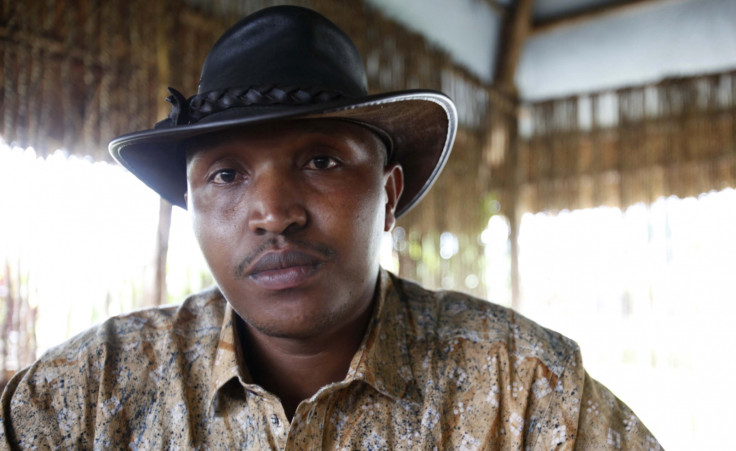DRC: 'The Terminator' faces international justice as trial opens on 2 September

Faced with 13 counts of war crimes and five counts of crimes against humanity, the long-awaited trial of former Congolese warlord Bosco Ntaganda – infamously known as the Terminator for his ability to kill with ease – opens at the International Criminal Court (ICC) on 2 September. It comes nine years after the court issued its first arrest warrant against him. Ntaganda denies all 18 charges against him.
When stacked up, the charges against Rwandan-born Ntaganda – who flipped between several rebel factions and served in both the Rwandan and Congolese armies – are truly horrific. They include: murder and attempted murder, attacks against civilians, rape and sexual slavery, the recruitment and use of child soldiers, pillaging and persecution in the Democratic Republic of Congo's (DRC) north-eastern Ituri district. The alleged crimes took place between 2002 and 2003 in the mineral-rich but restive region that has been wracked by violence and left an estimated 60,000 people dead since 1999.
"Much of the conflict in Ituri was linked to fights for control over the lucrative gold mines in Ituri district. During this period, Ntaganda's forces in the UPC [Union of Congolese Patriots] were responsible for horrific attacks on civilians," said Ida Sawyer, senior DRC researcher at Human Rights Watch (HRW). The DRC has an estimated $24t (£15t) of untapped mineral resources.
Chief ICC prosecutor Fatou Bensouda has dubbed Ntaganda "just as dangerous as [Ugandan rebel leader] Joseph Kony". At a previous hearing to confirm charges against the warlord, Ms Bensouda accused Ntaganda of permitting his troops to rape child and women soldiers in his own army and keep them as sex slaves.
HRW has welcomed his impending trial at The Hague. "Seeing Bosco Ntaganda in the dock sends a powerful message to others implicated in grave abuses in Congo that one day they too may be brought to justice," said Geraldine Mattioli-Zeltner, international justice advocacy director at HRW. "The long delay in apprehending Ntaganda shows the need for concerted international action in these cases."
HRW notes that a number of organisations including itself and the UN have "clearly demonstrated that senior political and military officials in Congo, Rwanda, and Uganda provided important financial, military, and political support to abusive armed groups in Ituri and the Kivu provinces, fully aware that these armed groups were engaged in widespread violations of international humanitarian and human rights law." In order to achieve resounding justice, they are urging the ICC to look beyond just rebel commanders and investigate high-ranking officials for their part in the heinous crimes.
"Ntaganda's bloodstained path to the ICC demonstrates the terribly high price that civilians pay for impunity," Mattioli-Zeltner said. "ICC and Congolese authorities should redouble their efforts and work together to arrest and bring to justice others responsible for grave crimes and their backers who are complicit in them."
Following the atrocities in Ituri, Ntaganda "joined other armed groups and continued to lead troops implicated in grave abuses in the Kivu provinces of eastern Congo." He would later become a general in the Congolese army before creating a new rebel group known as M23.
In March 2013, Ntaganda surrendered suddenly and voluntarily to the US embassy in Kigali, Rwanda and asked to be transferred to the ICC. His motives remain unclear, but some observers had said that it was an act of self-preservation after losing a power-struggle within M23.
The Prosecutor v Bosco Ntaganda will openon 2 September at 7.30am (GMT) at the court's Hague-based headquarters and will comprise Presiding Judge Robert Fremr, Judge Kuniko Ozaki and Judge Chang-ho Chung. Human Rights Watch has said that the trial is a "victory for victims, their families, and human rights activists across Congo".
Watch Ida Sawyer explain why Bosco Ntaganda faces trial at the ICC below.
© Copyright IBTimes 2025. All rights reserved.




















